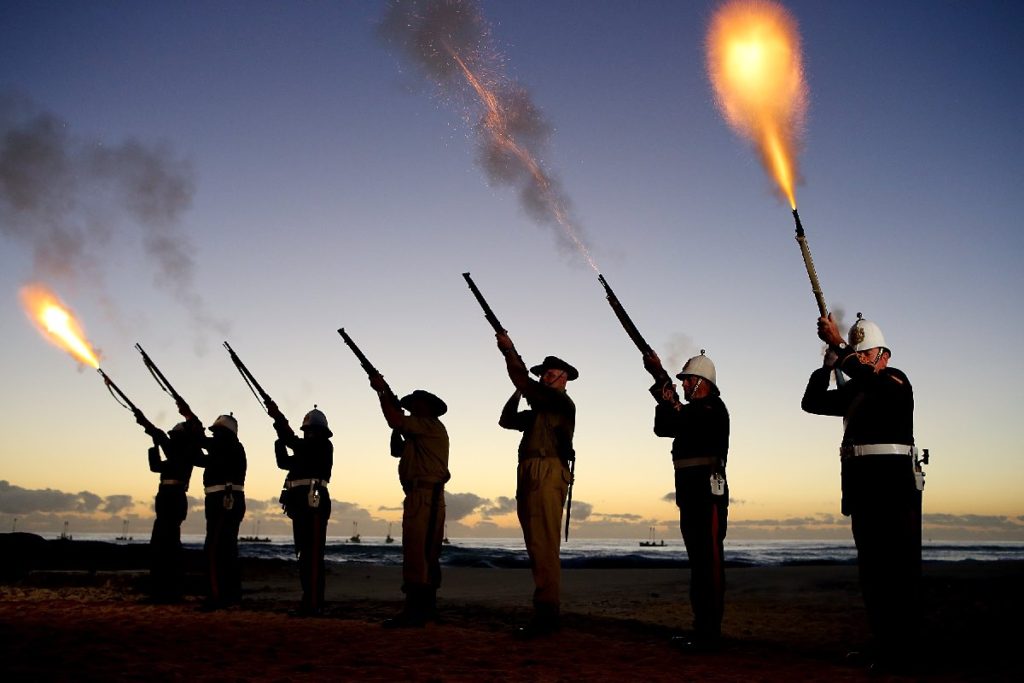
The ANZACs are still forcing Australia to grow up. It’s a role they never asked for.
The older I get, the younger the ANZACs of Gallipoli look.
The reality was they were just kids – many of them literally. But even the older ones are no older than my kids are now. To imagine them in the horror of the trenches – it really puts their sacrifice in perspective
And more than 100 years on, I still find it amazing how much we ask of the ANZACs – how they still carry the burden of our nation’s growth and maturity…
… and loss of innocence.
And it’s amazing that with each generation, our nation loses another layer of innocence.
The ANZACs were the first of us to wake up to the horrors of industrial war – the wholesale mechanised slaughter that humanity suddenly found itself capable of. Many of the original ANZACs thought they’d be home by Christmas. Instead they found themselves indefinitely bunkered down in hell.
And when it was over, the ANZACs and their families back home had to face the reality that the huge number of dead and maimed at Gallipoli was now possibly the way of things going forward.
How terrifying the world must have suddenly seemed.
The ANZACs also gave birth to the Australian identity. We were no longer a flavour of British, but our own unique, rugged, egalitarian and proud people.
At that moment, we stopped being children of the Empire. But that transition out of childhood is never easy. Its scary when you realise that maybe mommy won’t be there to save you.
And even though the Australian nation rightly thought that if it had the responsibility to sacrifice its sons to war, then that must go hand in hand with new responsibilities and freedoms, it must have been daunting to find ourselves suddenly standing by ourselves on the world stage.
The ANZACs gave us that loss of innocence as well.
And then the more we looked at the Gallipoli story – as the years passed and we were able to look at it with critical eyes – the more we started to wonder about how the whole bloody mess transpired.
And we started to analyse accounts of British commanders who saw Australians as cheap expendable – an attitude that continued into World War Two.
We were raised close to the bosom of the British Empire, but we suddenly realised that Mummy didn’t care for us, and was happy to use as a means to her own ends.
That was just how the world worked.
And suddenly we found ourselves alone, orphaned, at the far edge of the world.
For the Australians of the day, that must have been a painful loss of innocence.
And now today, we have become aware that ANZAC legend itself – and the role it plays in shaping Australian society – is itself influenced by a range of agendas.
Those agendas are not necessarily dark. We are a nation always searching of things to be proud of, and the ANZAC legend has been packaged and repackaged to meet that need – sometimes by beer companies out to make a profit, sometimes just by well meaning people wanting to give their kids a tradition they can connect to.
(But then sometimes by politicians looking to cash in on the ANZAC’s stature.)
There is a loss of innocence when we realise that the stories we tell about ourselves are just that – stories. The ANZACs did not set out to teach us a lesson. The lessons we take are up to us, and say as much about us as they do about those heroic feats at Gallipoli.
This is true at the individual level (“I’m not good at money” is just a story. It’s never a fact) and it’s true at the national level.
When we realise that, individually and nationally, then we must accept that we are responsible for the stories we tell and the people we become.
It’s easier to think that we are just innocent products of our history – that we don’t have any responsibility there. But slowly, we are losing that innocence.
And so I find it amazing that for over a century, the ANZACs have carried us through each stage in our growth – through each loss of innocence.
And I think they are able to do that because they never set out to give birth to a nation or shape the national character or any of that.
They were just a bunch of mates, doing what they could, in terrible conditions, against terrible odds.
And for that simple heroism, we still have a lot to be grateful for.